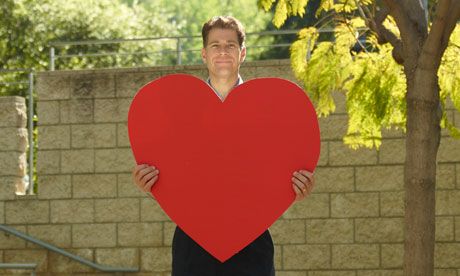
benevolence towards our fellow man will see the greater good of our lot? The subtle implication seems to be, let a bunch of individuals bring economic prosperity to society and then let government or the good graces of those individuals to re distribute some of those spoils in the form of jobs,investments, taxes, philanthropic missions back to society. Of course that’s almost too wishful, as a cursory regard of how wealth is shared today will show that the top 3% are the ones who keep amassing fortunes while the bottom third stay stagnant or regress, never mind the collapsing fortunes of those in the middle class…
But when it comes back to a reciprocal society perhaps classic game theory comes close in approximating how humans will behave. Which is to warn the reader, if you expect rational decisions you might be in fact incorrect- and here’s why:
There are many variations of the “trust game” but the basic idea is that a person (player one) is given some money and told to send a portion of it to a second person (player two), who has a one-off choice to either accept or reject the proposal. If player two rejects, neither player receives anything. If player two accepts, the money is split according to the proposal. Typically low offers, less than a third of player one’s endowment, are rejected as stingy, ensuring that both players get nothing.
Zak then goes on to show instances of when a player is charged in reciprocating it turns out it isn’t always conditional on what other players had reciprocated in the past but the degree of trust that existed between the players. Which incidentally is when oxytocin is at its highest. All of which raises the following idea, perhaps the creation and reciprocation of wealth and benevolence isn’t an act of rational incentive but one conditional on trust. But then again fostering trust might be one of the singularly hardest thing to do in society with deep resentments and past perceived mistrust and hurt (which could explain the recent looting in England and the Arabic risings of late).
This then leads to another interesting dilemma:
But if we are wired for trust rather than naked self-interest and the oxytocin system is really so powerful, why isn’t everyone virtuous all the time, and why did people in the riots trash and burn their own neighborhoods?
Zak invokes another hormone: testosterone. At times of stress, he argues, we are physiologically in “survival mode”, prompting the release of testosterone and its bioactive metabolite, DHT. These stress hormones prevent oxytocin from binding to brain receptors, tipping the balance towards distrust and away from pro-social behavior.
Could this be another way of saying that our brains are hardwired to protect us from being gullible and finding ourselves tricked or put in precarious situations? Is this then nature, our education, our moral fiber, our instincts ensuring the survival of our species, of our economies, our society by not giving in to complete trust or being a nice guy?
Ultimately one could argue a dash of oxycotin could see us all well, but let’s be honest- nice guys always finish last. Or do they?






